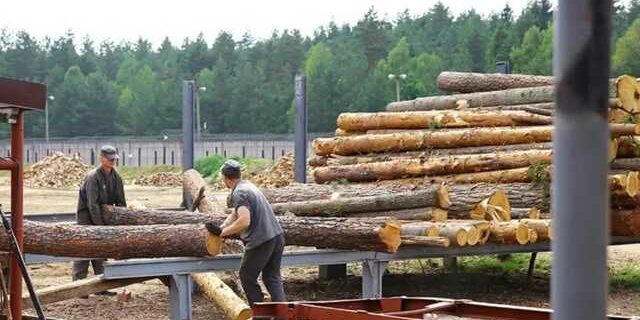Kyiv, May 8, 2023
Since the beginning of Russia’s full-scale invasion of Ukraine in 2022, the EU, the US, Japan and other countries have imposed sanctions on wood and seafood from Russia and Belarus. However, such sanctions are often incomplete. In addition, Russian and Belarusian companies have learned to circumvent them, passing off their products as goods from other countries. That is why on May 2 the Parliament of Ukraine officially called on partner countries to strengthen sanctions against Russian and Belarussian wood and seafood.
On May 2, the Parliament of Ukraine officially decided to appeal to partner countries, urging them to strengthen sanctions against Russian and Belarussian wood and seafood. Such an appeal was the result of an analysis of the effectiveness and completeness of the sanctions imposed against Russia and its key partner – Belarus.
The EU imposed the first significant sanctions against Russia back in 2014, after the illegal annexation of Crimea. However, the EU and other countries started imposing robust sanctions against Russia and Belarus only in 2022, after the start of a full-scale invasion of Ukraine.
One of the key sanctioned goods was wood and wood-based products. Back in March, the EU banned the export of wood and some wood products from Belarus. In April, wood and some wood products from Russia were also subject to sanctions. The USA, Japan and a number of other countries also imposed different sanctions against Russian wood.
The sanctions imposed have dealt a significant blow to Russia’s woodworking sector, which was worth $14 billion annually before 2022. Western companies such as IKEA, Stora Enso or Mondi announced their withdrawal from Russia. Russian companies faced the impossibility of conducting business as usual and serious losses.
However, more than a year of sanctions in place revealed shortcomings and problems. Firstly, there are schemes that allow sanctioned Russian and Belarusian wood to enter the EU and US markets. For example, as early as September 2022, investigators from the Environmental Investigation Agency discovered that birch plywood from Russia was passed off as Vietnamese or Chinese and continued to enter the US market.
Problems remain with the sanctions imposed by the EU. For example, according to OCCRP, companies avoid sanctions by passing off Russian and Belarusian wood as coming from Central Asian countries. There are similar examples of Russian wood biomass exported to Turkey, and then, probably, to EU countries.
Secondly, the established sanctions are incomplete. For example, EU sanctions against Belarus prohibit the import of wood, but not wooden furniture. That is why, for example, as the Earthsight investigation shows, the largest European furniture retailers continue to buy Belarusian furniture produced in prisons using the forced labor of political prisoners of the Lukashenko regime. Similarly, some wooden furniture from Russia, as well as a number of other wooden products, are not covered by sanctions.
Moreover, the Russian and Belarusian forestry and woodworking sectors continue to use machinery and equipment from Western companies, many of which (for example, Komatsu, Liebherr and dozens others) ceased to leave Russia and Belarus. All this continues to supply the Russian war machine with the funds needed to continue the war in Ukraine.
That is why the Parliament of Ukraine calls on partner countries to strengthen sanctions against Russian and Belarusian wood (as well as seafood), in particular: to establish a complete ban on any import of all types of wood and seafood, any products from it, as well as ban sale and service of any equipment and machinery used in these sectors in Russia and Belarus.
Contacts:







